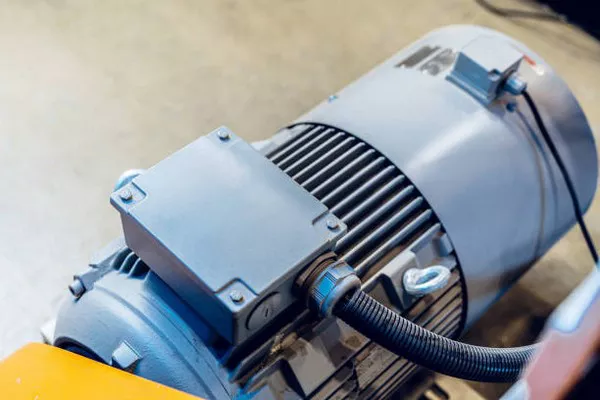In a world where reliable power is essential for both personal and professional use, having a dependable generator is paramount. Generators provide backup power during outages, enable outdoor activities, and support construction and industrial projects. However, with numerous options available on the market, choosing the best generator can be a daunting task. This guide will help you navigate the considerations and features to make an informed decision.
Types of Generators
Portable Generators: Ideal for home backup, camping, and small-scale construction projects. They run on gasoline, propane, or diesel and are easy to move around.
Inverter Generators: Known for their quiet operation and stable power output, making them suitable for sensitive electronics like laptops and smartphones. They are also portable and fuel-efficient.
Standby Generators: Installed permanently and connected to a home’s electrical system. They automatically start during a power outage and can run on natural gas or propane.
Industrial Generators: Designed for heavy-duty use in construction sites, large events, or industrial settings. They are powerful, durable, and capable of running for extended periods.
Key Considerations
Power Requirements: Calculate the total wattage needed to determine the generator size. Consider essential appliances and devices you want to power during an outage.
Fuel Type: Choose between gasoline, propane, diesel, or natural gas based on availability, storage convenience, and runtime requirements.
Runtime and Fuel Efficiency: Generators with longer runtimes and better fuel efficiency are more convenient and cost-effective in the long term.
Noise Level: Especially important for residential use and outdoor activities. Inverter generators are known for their quiet operation.
Portability: Evaluate the weight and size of the generator, especially for portable models that may need to be moved frequently.
Starting Mechanism: Decide between recoil (manual) start or electric start for convenience, particularly during emergencies.
Safety Features: Look for features like automatic shutdown on low oil, overload protection, and compliance with safety standards.
Top Generator Brands
Honda: Known for their reliable inverter generators suitable for camping and home backup.
Champion: Offers a range of portable and standby generators with excellent value for money.
Generac: Specializes in standby generators for homes and businesses, providing automatic backup power.
Westinghouse: Offers a wide selection of portable and inverter generators with good fuel efficiency and runtime.
DuroMax/DuroStar: Known for their affordable and powerful portable generators for both home and outdoor use.
Detailed Generator Types
Portable Generators
Portable generators are versatile and widely used for backup power in homes, outdoor events, and construction sites. They typically range from 1,000 to 10,000 watts, with variations in size, weight, and runtime. Here are some key features to consider:
Power Output: Choose a wattage that matches your needs, ensuring it can handle essential appliances without overload.
Fuel Tank Capacity: Larger tanks provide longer runtime, reducing the need for frequent refueling.
Portability: Look for handles and wheels for easy transportation.
Noise Level: Check the decibel rating for quieter operation, especially if you plan to use it in residential areas.
Inverter Generators
Inverter generators are popular for their clean power output and fuel efficiency. They use advanced technology to produce electricity, making them suitable for sensitive electronics. Consider these factors when choosing an inverter generator:
Clean Power Output: Suitable for charging laptops, smartphones, and other electronics without risk of damage.
Parallel Capability: Some models allow you to connect two generators for increased power output when needed.
Fuel Efficiency: Inverter generators adjust the engine speed based on load, optimizing fuel consumption.
Quiet Operation: Most inverter generators operate at lower decibel levels compared to conventional generators.
Standby Generators
Standby generators provide seamless backup power for homes and businesses during outages. They are permanently installed and automatically start when the main power supply fails. Key considerations include:
Automatic Transfer Switch: Essential for seamless transition between grid power and generator power.
Fuel Type: Choose natural gas or propane for continuous operation without refueling.
Power Capacity: Determine the required wattage to support critical appliances during an outage.
Installation: Consider professional installation for safety and compliance with local codes.
Industrial Generators
Industrial generators are designed for heavy-duty applications and large-scale power needs. They are commonly used in construction, mining, and events requiring extensive power. Factors to consider include:
Power Output: Choose generators with high wattage capacity to handle heavy machinery and equipment.
Durability: Look for robust construction and weatherproof features for outdoor use.
Fuel Type and Capacity: Opt for diesel or natural gas models based on availability and runtime requirements.
Safety and Compliance: Ensure generators meet industrial safety standards and regulations.
Additional Features
Electric Start: Convenient for quick startup, especially during emergencies.
Multiple Outlets: Allows for simultaneous connection of various devices and appliances.
Low Oil Shutdown: Prevents engine damage by automatically shutting down when oil levels are low.
Digital Displays: Provides real-time information on voltage, fuel level, and maintenance alerts.
Warranty and Support: Choose generators from reputable brands offering warranties and reliable customer support.
See Also How Does A Backup Generator Work
Conclusion
Choosing the best generator involves evaluating power needs, considering fuel type and efficiency, and selecting the appropriate generator type based on intended use. Whether for home backup, outdoor activities, or industrial applications, understanding these factors will help you make an informed decision. Research reputable brands, read customer reviews, and prioritize safety and reliability. By investing in the right generator, you can ensure uninterrupted power supply during emergencies and everyday activities.

